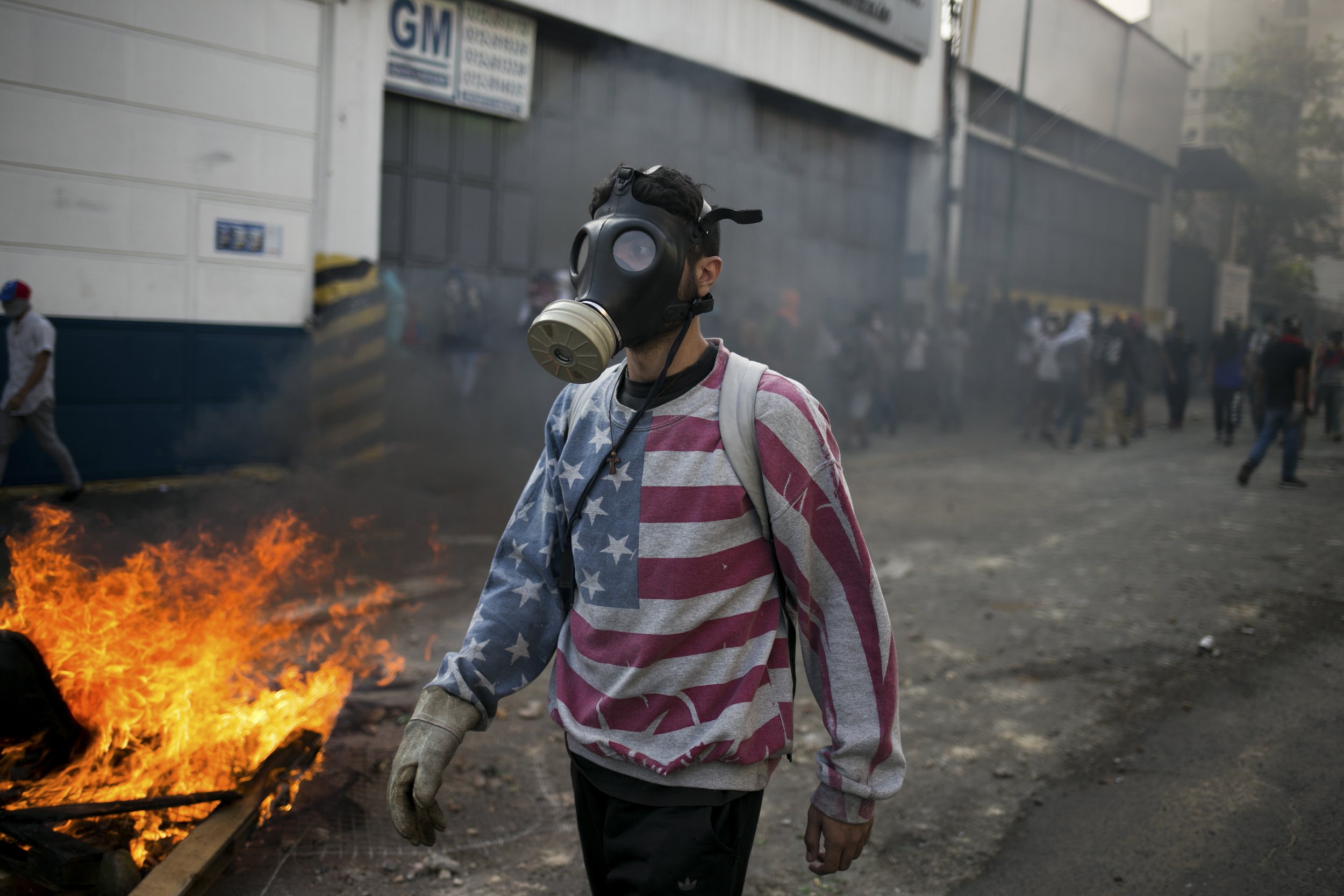
It's not clear who's going to emerge victorious in the battle for control of Venezuela. The man in the presidential palace, Nicolas Maduro, has most of the guns and most of the military on his side. All the interim President Juan Guaidó, whom the United States and more than 50 other countries recognize as the legitimate leader of what used to be Latin America's most prosperous country, has, is the people.
Maduro, who appeared at a military base flanked by soldiers still loyal to his regime, says the efforts by Guaido (whom the Venezuelan National Assembly placed in his current position) are little more than a "coup" and, according to the BBC "called on the armed forces to defeat" anyone seen plotting against him.
It's a thorny situation, created by policies favored by Maduro and his predecessor, the late Hugo Chavez, which have turned the country into an economic and social basket case. Things are reportedly so bad there some American commentators are talking about them as a foreshadowing of what the policies Democratic leaders like Bernie Sanders, Elizabeth Warren, Robert Francis 'Beto' O'Rourke, Nancy Pelosi, and Alexandria Ocasio-Cortez advocate might eventually do to the United States.
The American political theater surrounding the unrest in Caracas is a distraction. Socialist planned economies don't work: history has proven as much time and again yet every few decades or so the ideas underpinning them become fashionable. Remember, more people have been murdered by governments under the banner of Socialism and its offshoots than any other kind of regime.
People are dying in Venezuela because of the lack of food, the collapse of the healthcare system, the endemic joblessness and, not to be too poetic, the lack of hope that Maduro's policies have brought to the people of that once great nation. And, as this has happened, the Trump administration—whose stated policy is to lead by example in cases where U.S. national security is not directly threatened—has been encouraging those who are suffering to throw off the yoke of tyranny weighing them down.
This is not the first time America has been down this road, and earlier excursions offer a cautionary tale. In the 1950s, through propaganda broadcast over Radio Free Europe and Radio Liberty and other activities backed by the CIA and other agencies of the U.S. government, we repeatedly encouraged the people of Eastern Europe to rise up against the puppet governments backed by Moscow keeping them imprisoned in the Eastern Bloc.
In 1956, the Hungarians tried to do just that. Operating out of a desire to be free and in expectation that the West would come to their aid, many, many brave people found within themselves the wherewithal to fight for their freedom. Using whatever arms they could scrounge, they declared war on their Soviet-backed oppressors and fought for their liberty.
In what will forever be a significant blot in America's copybook, the Eisenhower administration did not come to their aid. The risks of a superpower conflict in which the use of nuclear weapons might be employed were just too great—it was said then as now—and so we stood by, shamefully, while the 1956 revolution in Hungary was crushed by Soviet tanks.
But why, if we were not going to come to their aid of the Hungarian rebels did we encourage them to take the risks they did? And are we doing the same thing now as applies to Venezuela?
An outcome involving U.S boots on the ground in Caracas is unlikely. Those calling for it are outliers who fail to recognize that's not part of the current administration's stated doctrine. Donald Trump promised part to draw down America's international military commitments, not increase them. We want Maduro to go, for a change for the right reasons. So far, he's staying put, likely because his Cuban and Russian paymasters don't want him to go. The Russians have too much to lose, as do the Chinese, who are likely waiting to make generous loans available to whoever wins in order to increase their influence in Latin America.
As Newsweek reported earlier this year Guaidó "promised 'to use the full weight of United States economic and diplomatic power to press for the restoration of Venezuelan democracy.'" Where would he get the idea these tools were at his disposal if not from Washington and not from the White House? And if that's the case, what are we prepared to do to back up our words? Will we stand by, or intervene if forces loyal to Maduro begin arresting and executing people en masse? Will we help negotiate a diplomatic solution, or are they on their own if the shooting starts in earnest? The people in Venezuela prepared to put their lives on the line to win their freedom deserve to know.
Newsweek contributing editor Peter Roff has written extensively about politics and the American experience for U.S. News and World Report, United Press International, and other publications. He can be reached by email at RoffColumns@GMAIL.com. Follow him on Twitter @PeterRoff
The views expressed in this article are the author's own.
Uncommon Knowledge
Newsweek is committed to challenging conventional wisdom and finding connections in the search for common ground.
Newsweek is committed to challenging conventional wisdom and finding connections in the search for common ground.





